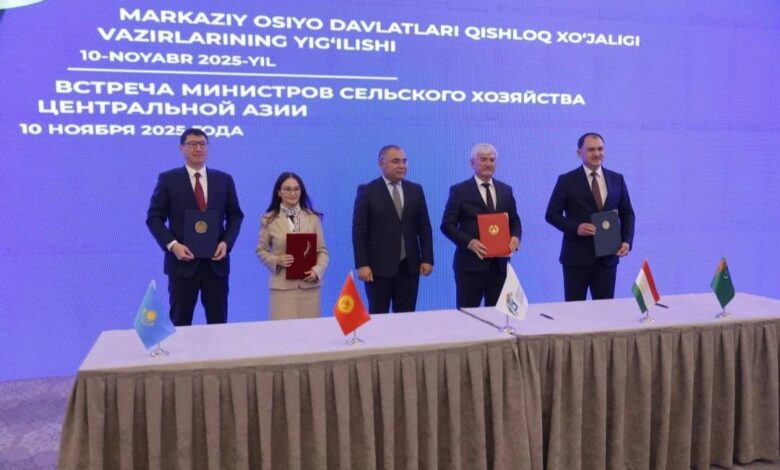
Tashkent hosted the inaugural meeting of Central Asian agriculture ministers, where participants discussed regional cooperation, sustainable agricultural development, and food security. The event was reported by BasAgro.kz.
The gathering brought together heads of agricultural agencies, diplomats, and representatives of international organizations.
Kazakhstan’s delegation was led by Vice Minister of Agriculture Yerbol Taszhurekov. He emphasized that cooperation among Central Asian states has reached a new level thanks to the joint efforts of regional leaders and highlighted the importance of strengthening partnerships in the agricultural sector.
Taszhurekov outlined Kazakhstan’s current agro-industrial policy, noting that diversification of croplands is progressing rapidly: areas under oilseeds have increased by 1 million hectares, while pulse crops expanded by 300 thousand hectares. Irrigated agriculture is also developing, with water-saving technologies now covering 590 thousand hectares — a figure expected to reach 1.3 million hectares by 2030.
As a result of modernization efforts, Kazakhstan is achieving record harvests of grains and oilseeds for the second consecutive year.
From January to September 2025, agricultural trade between Kazakhstan and Central Asian states grew by 24.4%, reaching USD 2.3 billion. Kazakhstan’s exports primarily include wheat, flour, vegetable oil, beef, and sugar, while imports mainly consist of vegetables and fruits.
Participants also reviewed opportunities for developing transport, energy, and innovation infrastructure, including the creation of cross-border logistics hubs. Kazakhstan presented successful models such as the “Central Asia” International Industrial Cooperation Center on the Uzbek border and the “Alatau” industrial-logistics complex on the Kyrgyz border.
The key outcome of the meeting was the signing of the Joint Declaration and Action Plan on Central Asia’s Food Security until 2030, an initiative put forward by President Kassym-Jomart Tokayev.
The proposal to establish a Regional Center for Sustainable Agriculture was also discussed.
At the conclusion of the meeting, all sides reaffirmed their readiness to expand cooperation and implement joint projects.



